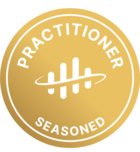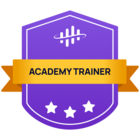Most people are talking about DataOps as if it’s an idea that emerged in the last 5 to 10 years. But according to Rolf Thu, it’s something Aarbakke, a world-leading mechanical solutions supplier to the oil and gas industry, has been thinking about since the early 2000s.
Thu says what’s today known as DataOps has been long in the making — people just didn’t know what to call it. For Aarbakke, it’s been a steady evolution, introducing digital solutions step by step over the years until the company emerged as the “smart factory” it sees itself as today.
“I joined Aarbakke in 1989, and the theme throughout my career has been learning,” Thu said. “And what we’re doing now with data is also about learning. We are learning from best practices, we are increasing the competence of our employees, and we are constantly seeking improvements for our factory through better and smarter uses of data.”
Can you explain more about how you use the data to achieve more at Aarbakke?
RT: With the powerful data we have, we can do many things to improve our processes and reduce our carbon footprint. We can track and trace, analyze, and see where the emissions are coming from — and then take action to reduce it.
Was it challenging to introduce a DataOps mindset in the organization?
RT: Change can be intimidating, but our founder and CEO had already established a culture of improvement when it comes to using industrial data. We drove the use of data starting from the ground up, and worked to remove any lingering fear of how the data is used.
Then we started to connect equipment and buy off-the-shelf solutions to monitor our performance. Once we reached the limitations of those products, we found Cognite Data Fusion, which has enabled us to raise our ambitions further.
What does DataOps mean for your employees on a daily basis?
RT: They can get insights, understand what’s going on, and see their own impact in an easy and visual way.
How does this data-centric way of work benefit Aarbakke (and your bottom line)?
RT: One of the biggest benefits is how rapidly we can move from idea to solution. We are also able to work with enormous amounts of data using a very lean team. And we can do amazing stuff with it because the tools and the data preparation are so good. We’re developing things quickly and cheaply, which is positive for our ROI.
What’s next for Aarbakke, and will you start calling it DataOps?
RT: We’re thinking of it as more of a “learning factory.” We’re curious and constantly investigating AI, machine learning, and other tools to help us use our data even better. I see a future in which much more of what we do is self-service to support our shop floor workers. And I also see us as holding a strong position globally when it comes to reducing our carbon emissions.


 Check the
documentation
Check the
documentation Ask the
Community
Ask the
Community Take a look
at
Academy
Take a look
at
Academy Cognite
Status
Page
Cognite
Status
Page Contact
Cognite Support
Contact
Cognite Support


